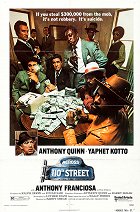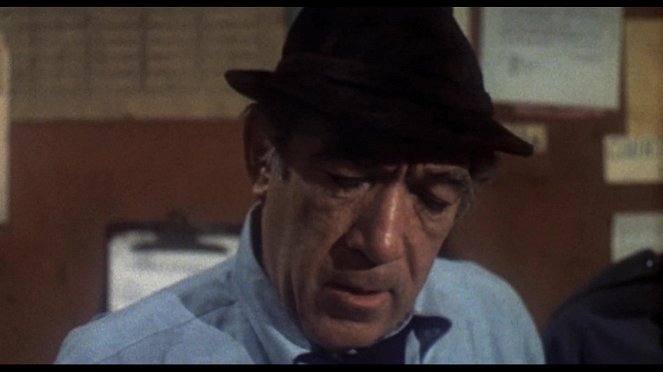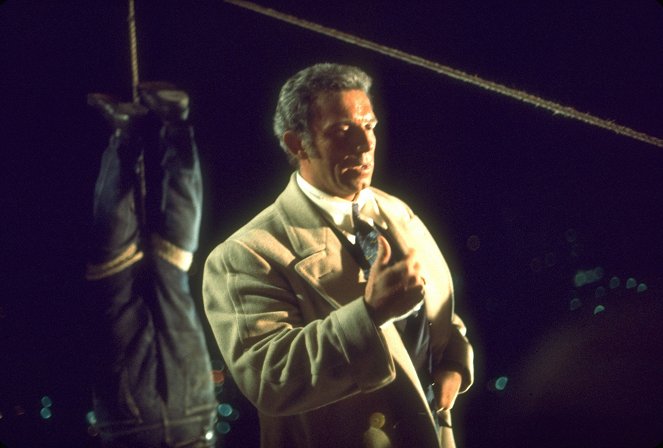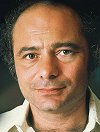Regie:
Barry ShearDrehbuch:
Luther DavisKamera:
Jack PriestleyMusik:
J.J. JohnsonBesetzung:
Anthony Quinn, Yaphet Kotto, Anthony Franciosa, Burt Young, George DiCenzo, Gloria Hendry, Antonio Fargas, Frank Adu, Paul Benjamin, Ken Lynch (mehr)Inhalte(1)
Cops gegen Killer: Abrechnung in Harlem Drei Schwarze in Polizeiuniform überfallen die Zahlstelle einer Unterwelt-Gang und erbeuten 300000 Dollar. Bei dem Wahnsinnscoup schießen die Gangster sieben Männer, Mafiosi und Polizisten nieder. Am Tatort trifft der altgediente Harlem-Cop Frank Mattelli auf den schwarzen Polizeidetektiv Pope. Captain Mattelli fühlt sich ausgebootet und will den Fall auf seine Art klären. Während die beiden Polizisten ihren Privatkrieg austragen, beginnt New Yorks Unterwelt zu brodeln. Für Mafia-Boß Don Gennarro und “Doc” Johnson, Führer der schwarzen Harlem-Gang, geht es um die Macht jenseits der 110. Straße. In den Häuserschluchten von New York beginnt eine blutige Jagd auf die Geldräuber. (Verleiher-Text)
(mehr)Videos (1)
Kritiken (2)
Straße zum Jenseits gibt es einen interessanten Kriminalfilm, in dem wir keine klar definierten Helden und Schurken wie in vielen anderen Filmen finden werden. Wir erleben die Handlung des Films mit Menschen, deren Ziele und Methoden moralisch angreifbar sind, daher handelt es sich um vollkommen glaubwürdige Charaktere, die nicht der Schwarz-Weiß-Malerei der Erzählung unterliegen. Die Geschichte ist dadurch erfrischend und kritisiert das soziale Umfeld besser, das aus ehrlichen Menschen Heuchler und aus Armen Mörder macht.
()
Though in its time Across 110th Street was basically a skilfully made genre movie, today it is surprising in its style and intensity. Conceived as a dynamic urban thriller shot on location New York, the film tells the story of three African-American thieves who steal from the mafia and find themselves on the run from both the gangsters and the police. The opening sequences, composed of shots of the city gradually zooming in from a bird’s-eye view to the level of particular streets, evoke in viewers an authentic impression of the American metropolis as a living organism made up of shabby buildings and pulsating streets. The resulting impression is further brilliantly enhanced by the titular theme song, a soul track whose lyrics summarise the inner feelings of most of the characters, regardless of which side of the law they are on. Though it would be difficult today to find such a locally focused film in American cinema that didn’t merely use a few prominent landmarks but instead explicitly emphasised and thematised its setting, Across 110th Street was not particularly exceptional in this respect at the time it was made. On the contrary, both cinema and television of the era abounded with similarly authentic urban titles; after all, the director of this film also worked on such series as Ironside, The Streets of San Francisco and Starsky and Hutch. It can thus be said that film and television productions in the 1970s were far from being as mutually exclusive as they were the 1980s and ’90s, and actually rather enriched each other thanks not only to the mutual sharing of creative personnel between the two formats, but also the intermingling of styles. With its excellent craftsmanship, which culminates in the brilliant rooftop climax, and its complex motif of racial, social and existential tensions in Harlem, Across 110th Street is one of the absolute highlights of the blaxploitation category and, at the same time, it elucidates the popularity of that genre, as well as that of urban crime thrillers in general. The intertwining of genre elements with bold thematisation of the big-city setting and the moods of the time guaranteed that the main target group, i.e. the urban population, strongly identified with the film.
()





Werbung